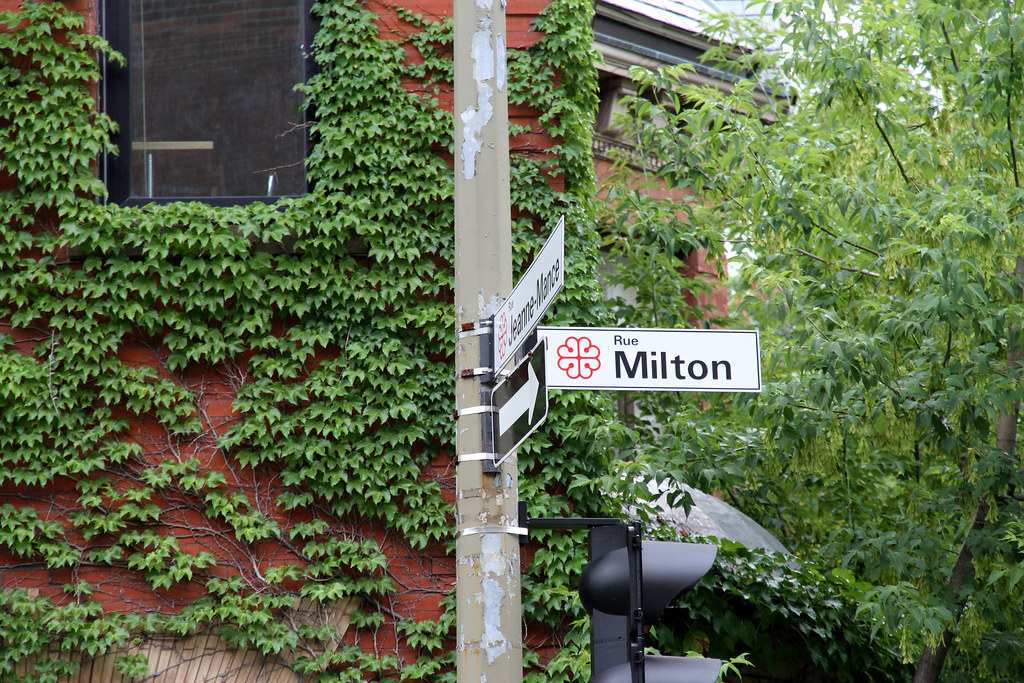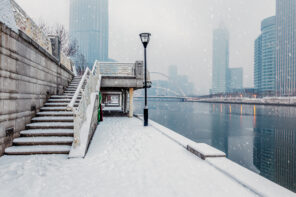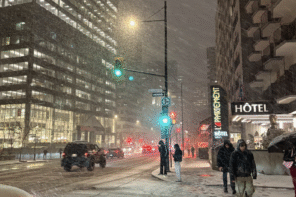At the corner of Milton St. and Parc Ave., smack-dab in the middle of the chain-coffee-Aritzia-puffer ‘McGill Ghetto’ and local-coffee-shop-vintage-Dickies ‘Plateau,’ exists a reality far removed from $8 coffee and $250 coats; one characterized by the failure of our community and local institutions to address an uncomfortable tragedy. Every afternoon I walk home silently dreading that I will have to wait an extra minute for the lights at Milton-Parc to turn green. Though I remind myself an extra minute means nothing in the grand scheme of life and I am not really threatened by anything more than my own discomfort. There is something about guttural screaming at 8:15 in the morning that cuts through time —slows it, stops it. At this moment, I am immediately disappointed in myself. In averting my eyes and fixating on the crosswalk below my feet, I am exactly the kind of overprivileged individual who has borne witness to this crisis for decades and never moved beyond their own discomfort.
This year, the city conducted an investigation into the plight of the Indigenous unhoused population, sparked by complaints from Milton-Parc residents. Montreal Ombudsman Nadine Mailloux published a report referring to the situation as a humanitarian crisis and urged the city and province to revamp its approach toward tackling unhousedness. Mailloux’s recommendations focused on safety, transitional housing, and social cohabitation, and called for Inuit-specific resources. Mailloux described the city’s current efforts as ‘seasonal’ and ‘temporary,’ citing deeper systemic issues suffered by the community including physical and sexual assault, prostitution, and drug or alcohol abuse. These complex social issues are intimately related to the traumatic legacy of residential schools and intergenerational oppression.
…I am not really threatened by anything more than my own discomfort.
More discernibly, the unhoused have been fenced off from traditionally occupied spaces, pushing them dangerously close to traffic. The chain-link fence erected on Park Ave. pinches off the Milton St. intersection and surrounds an empty lot; residents petitioned to expand the fence at the intersection out of concerns for their safety. While acknowledging that alcohol abuse and physical assault are genuine public risks, I argue these ‘concerns’ have more to do with discomfort and racial prejudice. Instead of pushing the community to relocate (as perhaps intended), the fencing has forced unhoused people onto business stoops and streets. Stranded at the complex intersection of unhousedness, discrimination, domestic abuse, and substance dependence, overlooked and ignored by ‘uncomfortable’ neighbours and ‘overworked’ authorities, Kitty Kakkinerk was forgotten at the furthest margins. As she was sprinting from an abusive partner, Kakkinerk’s flight was blocked by the fencing, forcing her onto the street. Seconds later she was killed by an oncoming truck. Kakkinerk’s death demonstrates how the government and the residents continue to neglect Milton-Parc’s Indigenous unhoused population. Since 2020, at least three other individuals have been killed by traffic. Another dimension of the disaster has been Montreal’s failure to support Inuit arrivals, for whom barriers to shelter and opportunity seem insurmountable. The situation has escalated within a historical and social context that denies and marginalizes Indigenous voices while profiting off of unceded land.
…these ‘concerns’ have more to do with discomfort and racial prejudice.
I was inspired to write this piece after I noticed a colorfully painted structure had been erected at the corner to provide emergency medical services. I assumed it was an initiative directed at the unhoused crisis and was happy the city finally seemed to be doing something. Yet I quickly came to note its meager, weekday morning hours. Recently, as the weather has too-quickly frozen over, its door appears permanently closed. I also remarked on the increased police presence. Officers congregated near the blue container were forcefully removing unhoused individuals from business stoops and private property. But where could they go? In one instance, I witnessed a member of the police force physically push a man onto the street. In my research, I uncovered a recent city initiative to fund “a patrol of mediators in the area.” Available funds are going to the Native Friendship Centre of Montreal to support a two-person foot patrol. Mediators work with the police, residents, and business owners to mitigate and address the issues at hand. However, given the patrol only operates on weekday mornings, the director of the Native Women’s Shelter has expressed concerns that Indigenous people will be unable to seek assistance when they need it most (i.e. on evenings and weekends). Organizers have responded that the goal is to intervene before the situation deteriorates later in the day, when things get to a point where police intervention is required (mainly due to substance consumption). The patrol and mediation team have a three-point objective: the prevention of crime and incivilities, sensitization, and providing access to resources.
…the city’s approach to the crisis remains temporary, seasonal, and ineffective.
I am inclined to agree that this solution fails to provide adequate emergency relief. More importantly, the city’s approach to the crisis remains temporary, seasonal, and ineffective. Official rhetoric like ‘crime prevention and sensitization’ reveal the deep and persistent injustice presented by the city’s deference to privilege and continued marginalization of the Indigenous. The issues at play — discrimination, substance dependence, lack of shelter, and abuse — require substantive, permanent, and proactive solutions. Last-minute resorts like emergency medical services, police intervention, and foot patrols fail to address any of these challenges and instead cater to the discomfort of people who have warm beds to sleep in and a political system that enforces their rights. The time for change is long overdue. I urge us to look past our discomfort, get out of our warm beds, and advocate.








